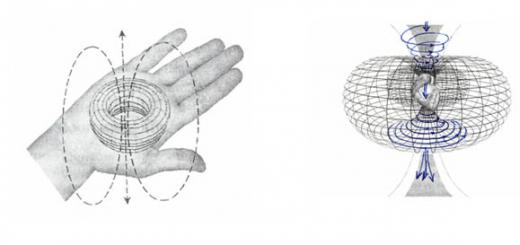Many who decide how to learn a language and are given a choice - a school of foreign languages or independent studies are wondering what the top of the easiest languages in the world to learn looks like? Similar questions are asked by many ordinary people and specialists, both those who are going to take up the study of a language, and professional linguists.
In this article, we will discuss a number of characteristics that usually determine how easy a particular language is to learn. It should be noted right away that the most important thing in the process of learning a foreign language is the motivation of the student and the fact whether you like to speak this new language for you. These factors determine which languages are the easiest for you. Spanish, French, Esperanto or ... Chinese. If you take on the study of a language that you are deeply uninterested in, then learning it may seem difficult and tedious to you, even if in fact it is not. Learning a foreign language, like everything else in study, must include interest and pleasure, otherwise there will be little sense. Of course, you can find additional factors that will make learning a non-native language easy for you. Read the following material, and then decide for yourself which languages are the easiest for you.  According to the State Department, the easiest languages for people in English-speaking countries are those that require about six hundred hours of class time (we mean more or less high-quality language proficiency). Specifically, these are the languages of the Germanic and Latin language groups. However, the German language itself takes more time, about seven hundred and fifty hours: the grammar of the German language is very complicated.
According to the State Department, the easiest languages for people in English-speaking countries are those that require about six hundred hours of class time (we mean more or less high-quality language proficiency). Specifically, these are the languages of the Germanic and Latin language groups. However, the German language itself takes more time, about seven hundred and fifty hours: the grammar of the German language is very complicated. 
English
The English language is considered to be quite simple: it has no cases, no word agreement, no gender. English grammar is also quite simple. Also, English is the most widely spoken language, it is spoken almost everywhere. Words in English are short, verbs change exclusively for the third person. Native speakers of this language are quite calm about the language mistakes of foreigners, since there is a very large number of people learning English as a second language. Thanks to all this, English is one of the easiest languages in the world to learn.
It is estimated that there are about 60 English-speaking countries in the world, i.e. without knowledge of English today it is difficult to get a job, so it is gaining immense popularity in preschool institutions. The main English-speaking states today are Great Britain, the USA, Canada (excluding Quebec), Australia and New Zealand. Also, English is one of the two official languages of India, and besides that, it is spoken in most of the southern island states and African countries.
French
The French language is also not difficult. Many French words are similar to English words. The French language is widely used all over the world. It is not difficult to find an opportunity to learn French and speak it. Given these factors, it can be argued that the French language also belongs to the list of those languages that are easy to learn.
People who learn French are called Francophones. There are 18 countries in the world where French is spoken. The main French-speaking states are France, Belgium, Switzerland and Canada (Quebec). In 14 African countries, this language is the only or one of the two official languages. 
Italian
The Italian language is also simple, it has no cases, its pronunciation is quite simple, the vocabulary has the roots of the Latin language, in other words, it will be familiar and close to those people who speak one of the languages of the Indo-European group.
Learning Italian will be useful for those who at least know or have studied Latin, one of the two official languages in the Vatican City State. Italian is the language of music. True, the Italophone world is not too large in its area: the language is spoken only in Europe and only in four states: Italy, the Vatican, San Marino and Switzerland. Small Italian-speaking minorities outside of Europe live in Argentina (oriundi). 
Spanish
The easiest language for a foreigner to learn is Spanish. His vocabulary is similar to English, the spelling is very simple (the way it is written is the way it is heard). Spanish is similar to Italian and is quite widely spoken. It has very simple grammar and pronunciation. Spanish ranks 3-4th in terms of prevalence, number of speakers and its use in speech after English, Chinese and Hindi; it is spoken by about 0.5 billion people, most of whom live overseas. The record holder for the number of Spanish speakers is not Spain, but Mexico! There are 130 million Spanish speakers in Mexico. The largest Spanish-speaking countries are Spain (in Europe), and overseas Mexico (in North America) and Argentina (in South America). 
Portuguese
Portuguese is one of the easy languages. At least there is no one who would not watch Brazilian soap operas, which were once popular among our grandmothers. The pronunciation is almost the same as Spanish, except that Portuguese is slightly sibilant, unlike its Eastern Pyrenean counterpart; this is if we talk about the classic (European) version, which is widely used not only in Portugal itself, but also in African countries: Cape Verde, Guinea-Bissau, Sao Tome, Goa, Angola and Mozambique. In the world, Portuguese is the sixth most popular language, despite the fact that the population of this country is only about 10 million, which is even less than the population of Moscow. The Brazilian version differs significantly from the standard (for example, there is no sound "sh"). Although these languages are similar to each other, the Spaniards do not always understand their neighbors, so the Portuguese sometimes have to write what they say.
Those who study Portuguese are called Lusophones (from Lusitania; the ancient name for Portugal). In total, there are about 1/4 billion people who speak Portuguese (250 million speakers) 
Esperanto
You will probably be very surprised, but Esperanto holds the palm for ease. In it, as in Spanish, "as it is heard, so it is written exactly." This language is artificial, that's why it's so simple. But the bad thing about it is that so far relatively few people speak it (about 2-3 million worldwide) - compared to languages such as Spanish, French or English. However, if you speak Esperanto, other Esperanto speakers will be very fond of you.
Esperanto is NOT an official language IN ANY COUNTRY OF THE WORLD! That is why knowing and studying it, you can find friends absolutely anywhere. Linguists have conducted studies that it takes only a month to master colloquial speech, and in order to know it perfectly - from 3 months to six months, while the basics of the same English will have to spend at least a semester or a year. I will add that next year, at the end of July, this language will celebrate its anniversary - 130 years since its birth! Recently, a petition appeared on one of the sites to make Esperanto the official language of the European Union! Anyone can sign it, including you! 
Summary
An additional set of conditions that can make the language easy for you personally:
1) Is the new language similar to your native language? In the event that the chosen language is similar to yours, has a vocabulary (vocabulary) and grammar similar to it, then this language will be easier for you personally. For example, a person who speaks Arabic will learn Farsi more easily than Spanish, even though Farsi is considered very difficult.
2) Do you personally like to study? If the answer is yes, any language can be simple - or at least interesting. And this circumstance will help you learn the language faster.
3) Availability of additional resources. With their help, you can achieve more effective and faster results. Additional resources include vocabulary and grammar books, audio, conversations with native speakers, and so on.
The material is based on an article by Frantisek Langer.
What is the easiest language to learn? This question is asked by many people, both those who plan to learn a language and professional linguists. Below we will discuss the characteristics by which one can determine how easy a language is to learn. It is worth noting that the most important thing when learning a language is your motivation and whether you like to speak this language. It depends on which language is the easiest for you.
Spanish, Esperanto or ... Chinese. If you learn a language that you are not interested in, then learning will seem difficult, even if in theory it is not. Learning a language, like everything else, must include pleasure and interest, otherwise there will be no sense. You can find other factors that will make learning a language easy FOR YOU. Read the article and then decide which language is easiest for you. Below we present TOP5 " the easiest languages in the world».
The easiest languages in the world to learn
According to the US Department of Foreign Affairs, the easiest languages for English-speaking citizens are those that require about 600 hours of class time - we are talking about more or less high-quality language proficiency. That is, these are the languages of the Latin and German language groups. However, German itself takes more time, about 750 hours: the grammar is too complicated.
English is also considered simple: it has no genders, cases, word agreement, its grammar is quite simple. The language is widespread and is spoken everywhere. The words in it are short, the verbs change only for the third person. Native speakers are comfortable with the mistakes of foreigners, because so many people learn English as a second language. Thus, English is one of the easiest languages to learn.
Italian is also simple, it has no cases, it has a simple pronunciation, the vocabulary has Latin roots, that is, it will be familiar to those who speak the languages of the Indo-European group.
Spanish is the easiest language to learn. His vocabulary is similar to English, the spelling is simple (as it is written, it is heard). It is similar to Italian, widely used, and has very simple pronunciation and grammar.
French is also not complicated, many of his words are similar to English. It is also widely used, it is very easy to find an opportunity to learn it and speak it. Thus, French is also one of those languages that are easy to learn.
Esperanto very simple. In it, as in Spanish, "as it is heard, so it is written." It's an artificial language, so it's really simple. But the bad thing about it is that relatively few people speak it - compared to languages such as English, French or Spanish.
But if you speak Esperanto, then other Esperantists will be very, very nice to you.
Additional factors that can make the language easy for you:
— is the language similar to your native language? If the language is similar to you, has similar vocabulary and grammar, then it will be easier for you. For example, a person who speaks Farsi will learn Arabic more easily than Spanish, even though Arabic is considered difficult.
— do you like to study? If yes, then any language can seem simple - or at least interesting. And this, in turn, will allow you to learn the language faster.
— additional resources.
From mylanguages.org
Translation by Natalia Gavrilyasta.
TOP 5 easiest languages
There are some indicators that determine the degree of difficulty in learning a foreign language. The priority in this matter is personal motivation, it is very important to understand why you need to learn a particular language and how much you like to speak it. It depends on which language is the easiest to learn for you. If you master a language that is not very interesting to you, then learning will be very difficult. Even if everyone around you says otherwise.
official rating
There is also an official list of the easiest languages in the world, published by the US Department of Foreign Affairs, on the Internet, it looks like this:
- English. English is probably in the ranking because it is spoken by an extremely large number of people. One of its advantages is conciseness, most of the words are short, the absence of cases, genders, that is, it is easy to operate with nouns, and verbs are declined only for the third person.
- Spanish.
There are many reviews about this language that give a general idea that it is quite simple. Its grammar is not too pretentious, the pronunciation is adequate to the spelling, exceptions are rare. That is, it is quite easy to read in Spanish.
- Italian. This language is a little more complicated than the above, but the pronunciation here is also simple. Experts say that Italian is a bit similar to Spanish. Therefore, if your goal is to become a polyglot, it makes sense to start by learning languages \u200b\u200b- “relatives”.
- French. This language at first glance seems difficult, because the pronunciation in it is really difficult. Problem solving is common practice.
- Esperanto. No wonder this language is one of the easiest languages to learn. It is believed that it is as simple as it is generally possible. The only disadvantage of Esperanto is that this language was created artificially, so there are not so many experts in it.
Additional factors that can make the language easy for you
- is the language similar to your native language? If the language is similar to yours, has similar vocabulary and grammar, then it will be easier for you. For example, a person who speaks Farsi will learn Arabic more easily than Spanish, even though Arabic is considered difficult.
- do you like to study? If so, then any language can seem simple - or at least interesting. And this, in turn, will allow you to learn the language faster.
- additional resources. With their help, you can achieve fast results. Additional resources include audio, grammar and vocabulary books, the ability to communicate with native speakers, and more.
summarize
The easiest languages in the world are a subjective concept. If you follow book grammar, it is possible to learn any language, but with some effort. Those who have studied several languages agree on one thing: you need to devote more time to practice, and then any language, even a complex one, will succumb to your efforts!
The most interesting languages of the world
Although not all of us travel constantly, we all understand how amazing and diverse the world is. And the best illustration of this is the diversity of languages.
Even at the dawn of human history, different languages began to appear in the world. We are all used to languages such as English, Spanish, Italian, but there are thousands of "big" and "small" languages that are spoken in the world.
Let's see what interesting languages are in the world and why they are interesting.
Chinese (Mandarin)
Mandarin is a group of dialects spoken in northern and southwestern China.
That is, it is not a separate language, but rather a set of dialects that form a language group. The most interesting thing about Mandarin is not how many people speak it, but rather how it is written. Mandarin is the only language that uses only hieroglyphs.
Greenlandic
It is spoken by about 60,000 people - the population of Greenland. This is an amazing language that arose from a combination of Greenlandic and Eskimo dialects. The language belongs to the Eskimo-Aleut languages, it is a close relative of the Inuit languages, which are spoken by the indigenous population of Canada. It is interesting in that there is no opposition in it in terms of deafness-voicedness, instead, fricative and stop sounds are opposed.
Pirakhan
The only living language of the Murano languages. It is spoken by the Pirahan tribe living in Brazil (about 300 people). The language is unique in that it has very few sounds (phonemes), there are only 13 of them. In addition, there are no concepts of number in the language.
Lao language
The official language of Laos, it is also spoken in northeastern Thailand. There are several facts that make the language especially interesting. Firstly, there is no officially accepted literary norm in the language, that is, each region of the country uses its own version of the language. In addition, the language uses the Abugida script, in which words are not separated by spaces.
Indonesian
The language with the simplest grammar. Perhaps the reason for this is that it was used as a means of communication between people for whom it was not native. A famous example: "ayam makan" (the chicken eats) can mean "I eat the chicken", "the chicken eats", "I ate the chicken", "when the chicken ate", "when the chicken was eaten", "this chicken eats", etc. d. Nevertheless, people speak this language and understand each other perfectly. Surely this language is easy to learn.
Cesian language
The language spoken in Dagestan. It is spoken by 12,467 people (according to the 2010 census).
The language has a very complex grammar and unusual throat and nasal sounds. It has 64 cases!
Khoisan languages
Khoisan languages of South Africa. These languages have clicking sounds reminiscent of the clatter of a horse. Moreover, there are different types of clicking sounds in the language, and the meaning depends on the correct pronunciation of their pronunciation. Some linguists believe that the Khoisan languages may be one of the world's earliest languages, because the process of eliminating clicking sounds is quite simple, but the appearance of such sounds in an existing language is difficult to imagine.
Pityantyatara
An Australian language spoken by Aboriginal peoples in central Australia.
The name of the language means "having the word pityantha".
Tok pisin
Tok Pisin is the version of English spoken in Papua New Guinea. Only two prepositions are preserved in it: "bilong" and "long". The first gives us the genitive case, and the second is responsible for all other prepositions.

The fastest language in the world
Pronunciation speed

How to determine, measure the speed of pronunciation? What is the fastest language? You can refer to the Guinness Book of Records, and see in which language the most words were read per minute. Here the record belongs to a schoolgirl from Moscow, Svetlana Arkhipova, and is 60,000 characters per minute. Yes, it's hard to imagine, but at such a speed, "War and Peace" can be read in twenty-five minutes and half the time will be spent turning pages. But the speed of reading depends on training, the complexity of the text, and the record belongs to only one person, and we are interested in the average value for all.
How to determine the speed of the language? To do this, you need to know how many sounds per minute the average native speaker utters during a conversation. Here we come to the conclusion that the records are in no way an indicator of the speed of pronunciation for all representatives of a given language group, and this is precisely what we are interested in.
Three leaders in speed
The fastest languages in the world are representatives of the Romance group of languages: French, Spanish and Italian.
At the same time, the fastest language among the three leaders should be recognized as Spanish, which, due to the large number of vowels, is a very “speedy language”. The average native speaker of Spanish speaks very, very quickly, all you have to do is walk through the streets of Spanish cities.

Not far behind the leader is the Italian language, the pronunciation speed of which is also very high. The speed of languages is determined not only by the ease of pronunciation, but also by the emotionality of its speakers. It is known that the representatives of Southern Europe are very emotional people who often tend to come into a state of increased excitement, accompanied by the speed of speech.
By the way, the easiest language in the world is Finnish, and the most difficult language is the language of the North American Chippewa Indians.
In the modern world, knowledge of one foreign language is already the norm, and not the highest degree of education. That is why people striving for continuous development often do not stop at knowing just one language, but strive to speak others. But not every polyglot will take up the study of a really complex dialect - for example, Asian, which can be learned for several decades, and then not fully understood ... Asking which language is the easiest, many interested people sort through various options, not knowing why to take, which language will be easy to learn, and will be able to come in handy? If you want to expand your horizons and understand more than one foreign speech, then we offer you a convenient selection of the easiest languages in the world.
English
In part, we can say that English is considered one of the easiest languages to learn due to its global prevalence around the world. In addition, there is a generally accepted stereotype that the easiest dialects of the world are all similar to English, and since most people have been taught it since childhood, it should not be difficult to learn them. In fact, everything is somewhat different: if the speech of several foreigners is similar to each other, then thanks to common roots in Latin (as they say, learn Latin and pronounce it with different accents - and that's it, you know all European dialects and dialects), and English seems simple due to the lack of cases and word forms in it, and also because of the simple grammar (tell that to a schoolboy who needs to cram all tenses!). Be that as it may, it is difficult or easy to learn English, but it will definitely come in handy - after all, it is spoken by as many as sixty countries! The most famous English-speaking countries today are Great Britain, the USA, Australia, New Zealand, Canada, India and some African countries that are former British colonies. English is considered one of the easiest only because, due to its demand, they begin to teach it even at preschool age.
Without any English language skills, it is now difficult to get a job
French
Another European language that has become widespread outside of France, French is officially spoken by 18 states: France itself, Switzerland, Belgium, Canada, as well as many small African countries, where French is the first or second state language. In fact, it is one of the easiest languages to learn if a person has previously studied English - the most difficult thing in this will be learning the grammatical features and pronunciation.
Otherwise, there should be no difficulties: compared to Asian or Scandinavian languages, French is one of the easiest languages in the world, and you can find an opportunity to study it almost everywhere - there are many French language schools on a par with English, and even in general education institutions, he now occupies far from the last place.

The speech of the French is very colorful, and it can be difficult to achieve an appropriate accent.
Spanish
Spanish is one of the most popular languages in the whole wide world, along with English and Chinese (the latter received this title solely because of the large number of inhabitants in China itself).
If you speak one of the European dialects (English, French or Italian), then it will not be difficult for you to learn Spanish: it is one of the easiest languages in the world due to the absence of cases, Latin roots of the vocabulary and even a fairly simple pronunciation.
Spanish is spoken throughout Latin America (except Brazil), and, most surprisingly, Spain itself cannot boast of the largest number of speakers!
Mexico boasts the largest number of Spanish-speaking residents - about one hundred and thirty million people. Due to the proximity to Mexico and the large number of immigrants in the United States, Spanish is actively studied, it is taught in public schools, and Spanish itself can often be found on the streets of Louisiana or California.

Unlike, for example, French, Spanish is easier to deliver, and even a child can handle it.
It is surprising that world experts, when asked which language is the easiest to learn, unanimously answer: "Esperanto", although no one has ever seen native speakers of this language from whom one could "learn easily". And he won’t see it, because Esperanto is the “language of the world”, artificially created on the basis of common European dialects and dialects of the Romance group. It does not have “its own” nationality, there are no countries in which it would be official, it was created as a universal means of communication, in order to make it easier for Europeans to understand each other. And since Esperanto is a foreign language for all the people of the world, it was created as one of the simplest (or rather, the simplest), and it lacks grammar and spelling (all words are written exactly the same as they are perceived by ear), and word formation has no exceptions and is based on a template. Linguists claim that it is possible to speak Esperanto fluently in only about four weeks, and in three to six months it is possible to learn it perfectly.

The artificial language recently turned 130 years old, and a petition has been published proposing that it be made the official language of the European Union.
Considering the easiest languages in the world, one cannot ignore the fact that they are all European and have a Latin origin. It is believed that it is most difficult to learn your first foreign language (even when given at school age, it “overlaps” poorly, especially if a non-native speaker teaches), while subsequent European adverbs “lay down” on top of each other, and memorizing vocabulary and pronunciation is easier on associative level. Esperanto, on the other hand, is generally unsettled, while being the easiest in the world - and all because it was specially created on the basis of European languages \u200b\u200bin order to make it easier for Europeans to understand each other.
M Many who decide how to learn a language and are given a choice - a school of foreign languages or independent studies are wondering what the top of the easiest languages in the world to learn looks like? Similar questions are asked by many ordinary people and specialists, both those who are going to take up the study of a language, and professional linguists.
In this article, we will discuss a number of characteristics that usually determine how easy a particular language is to learn. It should be noted right away that the most important thing in the process of learning a foreign language is the motivation of the student and the fact whether you like to speak this new language for you. These factors determine which languages are the easiest for you. Spanish, French, Esperanto or ... Chinese. If you take on the study of a language that you are deeply uninterested in, then learning it may seem difficult and tedious to you, even if in fact it is not. Learning a foreign language, like everything else in study, must include interest and pleasure, otherwise there will be little sense. Of course, you can find additional factors that will make learning a non-native language easy for you. Read the following material, and then decide for yourself which languages are the easiest for you.According to the State Department, the easiest languages for people in English-speaking countries are those that require about six hundred hours of class time (we mean more or less good language skills). Specifically, these are the languages of the Germanic and Latin language groups. However, the German language itself takes more time, about seven hundred and fifty hours: the grammar of the German language is very complicated.
English
The English language is considered to be quite simple: it has no cases, no word agreement, no gender. English grammar is also quite simple. Also, English is the most widely spoken language, it is spoken almost everywhere. Words in English are short, verbs change exclusively for the third person. Native speakers of this language are quite calm about the language mistakes of foreigners, since there is a very large number of people learning English as a second language. Thanks to all this, English is one of the easiest languages in the world to learn.
It is estimated that there are about 60 English-speaking countries in the world, i.e. without knowledge of English today it is difficult to get a job, so it is gaining immense popularity in preschool institutions. The main English-speaking states today are Great Britain, the USA, Canada (excluding Quebec), Australia and New Zealand. Also, English is one of the two official languages of India, and besides that, it is spoken in most of the southern island states and African countries.
French
The French language is also not difficult. Many French words are similar to English words. The French language is widely used all over the world. It is not difficult to find an opportunity to learn French and speak it. Given these factors, it can be argued that the French language also belongs to the list of those languages that are easy to learn.
People who learn French are called Francophones. There are 18 countries in the world where French is spoken. The main French-speaking states are France, Belgium, Switzerland and Canada (Quebec). In 14 African countries, this language is the only or one of the two official languages.
Italian
The Italian language is also simple, it has no cases, its pronunciation is quite simple, the vocabulary has the roots of the Latin language, in other words, it will be familiar and close to those people who speak one of the languages of the Indo-European group.
Learning Italian will be useful for those who at least know or have studied Latin, one of the two official languages in the Vatican City State. Italian is the language of music. True, the Italophone world is not too large in its area: the language is spoken only in Europe and only in four states: Italy, the Vatican, San Marino and Switzerland. Small Italian-speaking minorities outside of Europe live in Argentina (oriundi).
Spanish
The easiest language for a foreigner to learn is Spanish. His vocabulary is similar to English, the spelling is very simple (the way it is written is the way it is heard). Spanish is similar to Italian and is quite widely spoken. It has very simple grammar and pronunciation. Spanish ranks 3-4th in terms of prevalence, number of speakers and its use in speech after English, Chinese and Hindi; it is spoken by about 0.5 billion people, most of whom live overseas. The record holder for the number of Spanish speakers is not Spain, but Mexico! There are 130 million Spanish speakers in Mexico. The largest Spanish-speaking countries are Spain (in Europe), and overseas Mexico (in North America) and Argentina (in South America).
Portuguese
Portuguese is one of the easy languages. At least there is no one who would not watch Brazilian soap operas, which were once popular among our grandmothers. The pronunciation is almost the same as Spanish, except that Portuguese is slightly sibilant, unlike its Eastern Pyrenean counterpart; this is if we talk about the classic (European) version, which is widely used not only in Portugal itself, but also in African countries: Cape Verde, Guinea-Bissau, Sao Tome, Goa, Angola and Mozambique. In the world, Portuguese is the sixth most popular language, despite the fact that the population of this country is only about 10 million, which is even less than the population of Moscow. The Brazilian version differs significantly from the standard (for example, there is no sound"sh"). Although these languages are similar to each other, the Spaniards do not always understand their neighbors, so the Portuguese sometimes have to write what they say.
Those who study Portuguese are called Lusophones (from Lusitania; the ancient name for Portugal). In total, there are about 1/4 billion people who speak Portuguese (250 million speakers)
Esperanto
You will probably be very surprised, but Esperanto holds the palm for ease. In it, as in Spanish, "as it is heard, so it is written exactly." This language is artificial, that's why it's so simple. But the bad thing about it is that so far relatively few people speak it (about 2-3 million worldwide) - compared to languages such as Spanish, French or English. However, if you speak Esperanto, other Esperanto speakers will be very fond of you.
Esperanto is NOT an official language IN ANY COUNTRY OF THE WORLD! That is why knowing and studying it, you can find friends absolutely anywhere. Linguists have conducted studies that it takes only a month to master colloquial speech, and in order to know it perfectly - from 3 months to six months, while the basics of the same English will have to spend at least a semester or a year. I will add that next year, at the end of July, this language will celebrate its anniversary - 130 years since its birth! Recently, a petition appeared on one of the sites to make Esperanto the official language of the European Union! Anyone can sign it, including you!
Summary
An additional set of conditions that can make the language easy for you personally:
1) Is the new language similar to your native language? In the event that the chosen language is similar to yours, has a vocabulary (vocabulary) and grammar similar to it, then this language will be easier for you personally. For example, a person who speaks Arabic will learn Farsi more easily than Spanish, even though Farsi is considered very difficult.
2) Do you personally like to study? In the case of a positive answer, any language can be simple - or at least interesting. And this circumstance will help you learn the language faster.
3) Availability of additional resources. With their help, you can achieve more effective and faster results. Additional resources include vocabulary and grammar books, audio, conversations with native speakers, and so on.
The material is based on an article by Frantisek Langer.
A person's ability to learn languages is laid in the earliest period of his development. If a child develops in society and masters the language of his environment, then this means that he is, in principle, able to master any other language that is not native to him. But what determines how difficult or easy it will be for a particular person to learn a particular language?
Difficulties in learning languages
Scientists have found that in learning a foreign language for a person there are a number of difficulties, both subjective and objective.
- With the subjective, everything is more or less clear, despite the fact that they can be so diverse in different representatives of humanity. First of all, the subjective simplicity or difficulty in the perception and mastering of the language is determined by the degree of kinship of the studied language with the native language. The similarity or difference of language categories is also important. For example, it will be difficult for a person for whom the native language is to perceive such features of Russian as declensions and the gender of nouns, the category of the verb aspect, that is, everything that is absent in English. The fact that the Russian language, like English, belongs to the group of Indo-European languages, does not in the least contribute to the simplification of its perception by native speakers.
- Also, a subjective factor in the comprehension of languages is individual personality traits: for example, exceptional visual memory, which allows memorizing the complex spelling of the language being studied, even though the native language of the individual has no resemblance to it. Or developed mathematical abilities, which will always give odds to their owner when studying languages of an analytical type, again, regardless of the rules and features of their native language.
- But to this day, battles of linguists are being fought over objective difficulties. It is clear what to consider as such difficulties. But on what scale to evaluate them? There is no consensus today. What should be taken as a universal unit of complexity: the number and variety of vowels or consonants of the language, the grammatical structure, the plurality of verb forms, or something else? In the Hungarian language there are 35 cases, but in the Eskimo language there are 63 forms of the present tense, how can you determine which one is more difficult? In other words, how do you measure the complexity of a language?
Grades of complexity of languages
American scientists from the Institute of Foreign Service of the US Department of State took the amount of time required to master the basics of a particular language as a unit of complexity and determined the following gradations of difficulty in learning languages.
- The first category includes relatively simple languages, which require approximately 600 hours of classroom instruction to master. It is Spanish, Swedish. That is, if you devote two hours a day 6 times a week to studying one of the above languages, then in a year you can really master it at a fairly high level. Why not?
- Icelandic, Russian fell into the next category - more complex languages. It will take at least 1100 hours to master them.
- Japanese, Arabic and Chinese are classified as the most difficult languages, as it takes 2200 hours or more to master them. Scholars include Estonian, Finnish and Hungarian in the same complex group of languages.
Do you agree with this system of grading the complexity of languages?
Like the article? Support our project and share with your friends!
Guinness Book of Records
And here is information about difficult languages according to the Guinness Book of Records.
- The Chinese language is due to the hieroglyphic writing system, which does not have a direct correspondence with the sound of words and concepts transmitted by hieroglyphs. And also because of the system of semantic tones, of which there are 4 in Chinese. If you pronounce a certain word in an inappropriate tone, then this word can acquire a completely opposite meaning, or even completely lose its meaning.
- Tabasaran language, which is one of the state languages of Dagestan, which has 48 cases of nouns.
- The language of the Haida Indians living in North America is recognized as the most difficult due to the record number of prefixes (prefixes) - there are more than 70 of them.
- A Chippewa language of North American Indians, which has about 6,000 verb forms.
- The Eskimo language, which includes 63 forms of the present tense and 252 noun endings.
Conclusions of neurophysiologists
Neurophysiologists have come to the conclusion that the most difficult languages are those that are difficult for the brain to perceive, even for native speakers of such languages. Among such languages scientists name Chinese and Arabic. It is interesting that when using these languages, the mechanisms of both the left and right hemispheres of the brain are involved in the brain of their speakers, while when communicating in all other languages, only one of the hemispheres of the brain is activated.
Therefore, if you want to effectively develop your brain, start learning Arabic or Chinese. Fortunately, in recent years they have been increasingly in demand on the world stage.
Motivation is everything
No matter how difficult the language you are about to master is, it can be much easier and more interesting for you, provided that you have a strong motivation to learn it. The result depends only on you, your perseverance and dedication. As they say, there would be a desire!
What do you think: what is the most important thing for effective language acquisition and what is the importance of its complexity or simplicity?










